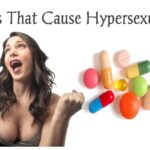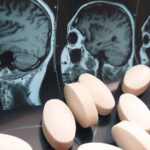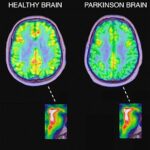10 Signs and Symptoms of Drug Induced Hypersexuality

What is Drug-Induced Hypersexuality?
Drug-induced hypersexuality is a condition in which a person experiences an increased sex drive or sexual behavior as a side effect of taking certain medications. This can manifest as an excessive preoccupation with sexual thoughts or urges, an increase in sexual fantasies, an increase in the frequency or intensity of sexual activity, or engaging in risky or inappropriate sexual behavior.
Some drugs that are known to be associated with hypersexuality include certain antidepressants (such as selective serotonin reuptake inhibitors), dopamine agonists used to treat Parkinson’s disease, and drugs used to treat bipolar disorder. The exact mechanisms by which these drugs cause hypersexuality are not well understood, but it is thought that they may affect the levels of neurotransmitters in the brain that are involved in regulating sexual behavior.
Drug-induced hypersexuality can be a distressing and disruptive side effect, but is not a very common side effect of medication. The prevalence of drug-induced hypersexuality is not well established, but it is thought to be relatively rare.
The incidence of hypersexuality as a side effect of antidepressants, for example, is estimated to be less than 1% in clinical trials. However, the actual incidence may be higher, as many people may not report this side effect or may not recognize it as a side effect of the medication.
Hypersexuality as a side effect of dopamine agonists used to treat Parkinson’s disease is somewhat more common, with some studies reporting an incidence of up to 14%. However, the incidence varies depending on the specific medication, dosage, and individual factors such as age and gender.
History of Drug-Induced Hypersexuality
The phenomenon of drug-induced hypersexuality has been recognized for many years, but it has only recently begun to receive more attention from researchers and clinicians. The first reports of drug-induced hypersexuality were associated with the use of dopaminergic medications to treat Parkinson’s disease, which were found to cause impulsive and compulsive behaviors including hypersexuality.
In the early 2000s, reports began to emerge of hypersexuality as a side effect of antidepressant medication, particularly selective serotonin reuptake inhibitors (SSRIs). These reports prompted further investigation into the relationship between medication and sexual behavior, and it was discovered that a number of other medications could also cause hypersexuality as a side effect, including mood stabilizers and antipsychotics.
Research has also suggested that the risk of drug-induced hypersexuality may be influenced by individual factors such as age, gender, and past history of sexual behavior. For example, some studies have suggested that younger men may be more vulnerable to this side effect than older men or women.
Today, drug-induced hypersexuality is recognized as a potential side effect of many different types of medication, and doctors are advised to monitor patients taking these medications for signs of sexual dysfunction or other sexual side effects. While the exact prevalence of drug-induced hypersexuality is not well established, it is clear that this side effect can be distressing and disruptive for those who experience it, and it is important for patients and clinicians to be aware of its potential risk.
How Does Drug Induced Hypersexuality Happen
The exact mechanisms by which drug-induced hypersexuality occurs are not well understood, but it is believed to be related to changes in brain chemistry caused by certain medications. Many medications that have been associated with hypersexuality are thought to affect the levels of neurotransmitters in the brain, including dopamine and serotonin.
Dopamine is a neurotransmitter that is involved in reward and pleasure pathways in the brain. Drugs that increase dopamine activity, such as certain medications used to treat Parkinson’s disease, can also increase sexual desire and behavior in some individuals. Similarly, some medications that affect serotonin levels in the brain, such as selective serotonin reuptake inhibitors (SSRIs) used to treat depression, can also lead to changes in sexual behavior.
In some cases, hypersexuality as a side effect of medication may be related to disinhibition or impulsivity. Medications that affect inhibitory pathways in the brain can lead to a loss of control over sexual impulses and behavior.
It is important to note that not everyone who takes medications that affect brain chemistry will experience hypersexuality as a side effect. The exact mechanisms by which these medications affect sexual behavior are complex and not yet fully understood, and there may be individual factors such as age, gender, and past history of sexual behavior that contribute to the development of drug-induced hypersexuality in some individuals.
10 Signs and Symptoms of Drug-Induced Hypersexuality
Drug-induced hypersexuality can manifest in a variety of ways, and the signs and symptoms can vary from person to person. However, some common signs and symptoms of drug-induced hypersexuality may include:
1. Excessive preoccupation with sexual thoughts or fantasies: People with drug-induced hypersexuality may experience intrusive sexual thoughts or fantasies that are difficult to control or ignore. These thoughts may be persistent and distracting and can interfere with daily activities.
2. Increased sexual desire or libido: Individuals with drug-induced hypersexuality may experience an increased desire for sexual activity, and may seek out sexual experiences more frequently than usual.
3. Engaging in sexual behavior more frequently or for longer periods of time than usual: People with drug-induced hypersexuality may engage in sexual activity more frequently than usual, and may spend longer periods of time engaging in sexual behavior.
4. Using pornography or engaging in other sexually explicit activities more frequently than usual: Individuals with drug-induced hypersexuality may turn to pornography or other sexually explicit activities more frequently than usual, and may find it difficult to stop or control this behavior.
5. Engaging in risky or inappropriate sexual behavior, such as unprotected sex or infidelity: People with drug-induced hypersexuality may engage in sexual behavior that is risky or inappropriate, such as having unprotected sex or engaging in infidelity.
6. Difficulty controlling sexual urges or behavior: Individuals with drug-induced hypersexuality may find it difficult to control their sexual urges or behavior, even if it is causing them distress or conflict.
7. Neglecting other responsibilities or activities in order to engage in sexual activity: People with drug-induced hypersexuality may neglect other responsibilities or activities in order to engage in sexual behavior, and may prioritize sexual activity over other important aspects of their life.
8. Feeling intense shame or guilt about sexual behavior: Individuals with drug-induced hypersexuality may experience intense feelings of shame or guilt about their sexual behavior, especially if it conflicts with their personal values or beliefs.
9. Engaging in sexual behavior that is out of character or inconsistent with personal values or beliefs: People with drug-induced hypersexuality may engage in sexual behavior that is out of character or inconsistent with their personal values or beliefs, and may feel conflicted or distressed as a result.
10. Relationship problems or conflict related to sexual behavior or desire: People with drug-induced hypersexuality may experience problems or conflict in their relationships due to their sexual behavior or desire, and may struggle to maintain healthy, satisfying relationships.
It is important to note that experiencing these symptoms does not necessarily mean that someone has drug-induced hypersexuality. These symptoms can also be indicative of other conditions or factors, such as an underlying psychiatric disorder, stress, or relationship issues. If you or someone you know is experiencing these symptoms, it is important to speak with a healthcare provider to determine the underlying cause and explore potential treatment options.
How is Drug-Induced Hypersexuality Treated?
The treatment for drug-induced hypersexuality depends on the underlying cause of the condition. If the hypersexuality is due to the use of a specific medication or drug, discontinuing the drug or reducing the dosage may be effective in reducing the symptoms.
Other treatments for drug-induced hypersexuality may include:
1. Psychotherapy: Psychotherapy, such as cognitive-behavioral therapy, can help individuals with drug-induced hypersexuality learn coping strategies and develop healthier ways of managing their sexual behavior and desires.
2. Medication: Certain medications, such as selective serotonin reuptake inhibitors (SSRIs), can be effective in reducing sexual desire and compulsive behavior in some individuals with hypersexuality.
3. Support groups: Joining a support group for individuals with hypersexuality can provide a safe space to discuss the condition and receive support and guidance from others who are going through similar experiences.
4. Lifestyle changes: Making lifestyle changes, such as reducing stress, improving sleep hygiene, and engaging in regular exercise, can also be helpful in managing hypersexuality symptoms.
It is important to work with a healthcare professional to determine the most effective treatment approach for drug-induced hypersexuality, as the best course of treatment will depend on the individual’s unique situation and needs. Additionally, if the drug-induced hypersexuality is a symptom of an underlying psychiatric disorder, such as bipolar disorder or borderline personality disorder, treatment for that disorder may also be necessary to effectively manage hypersexuality symptoms.





